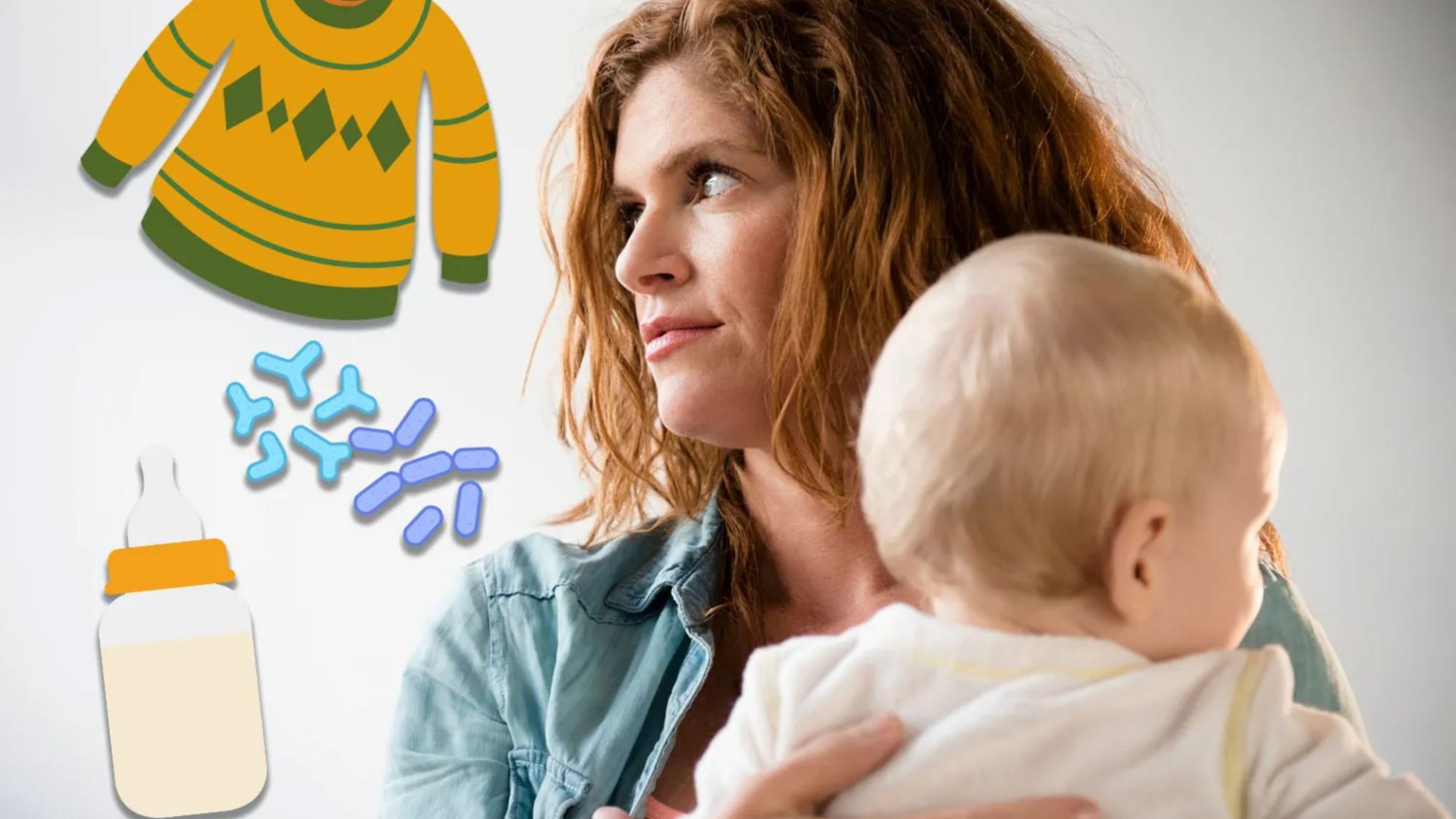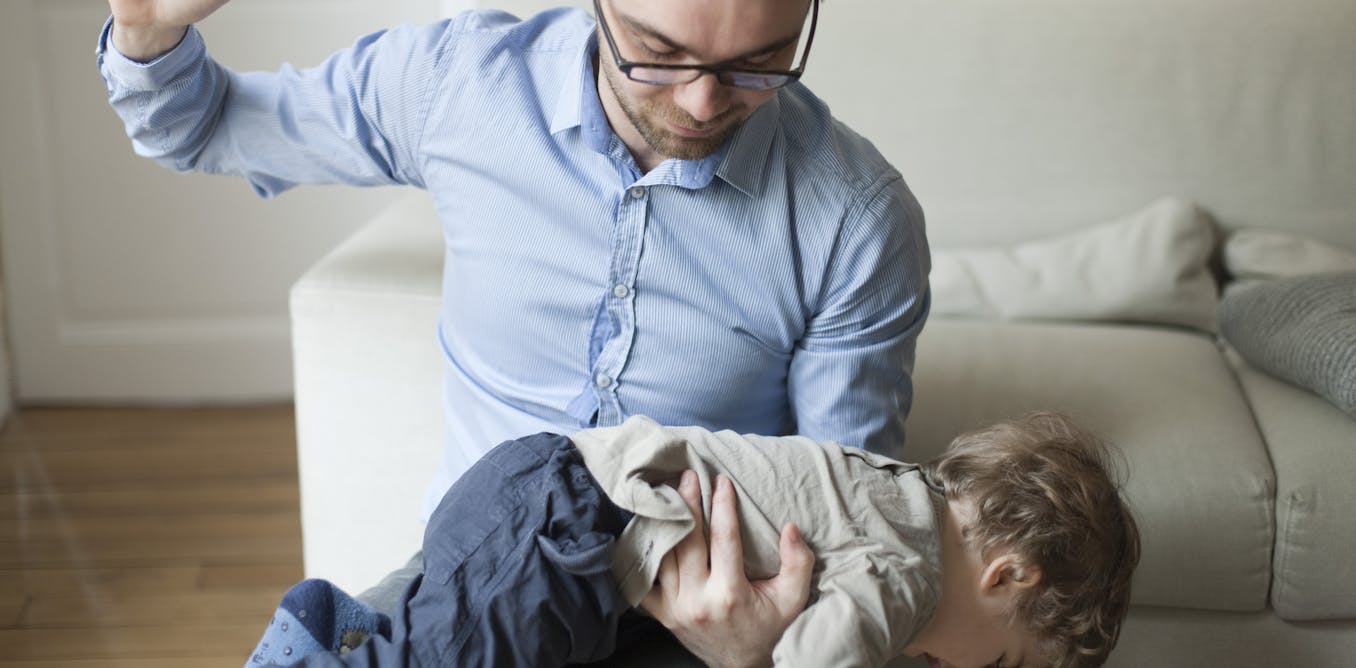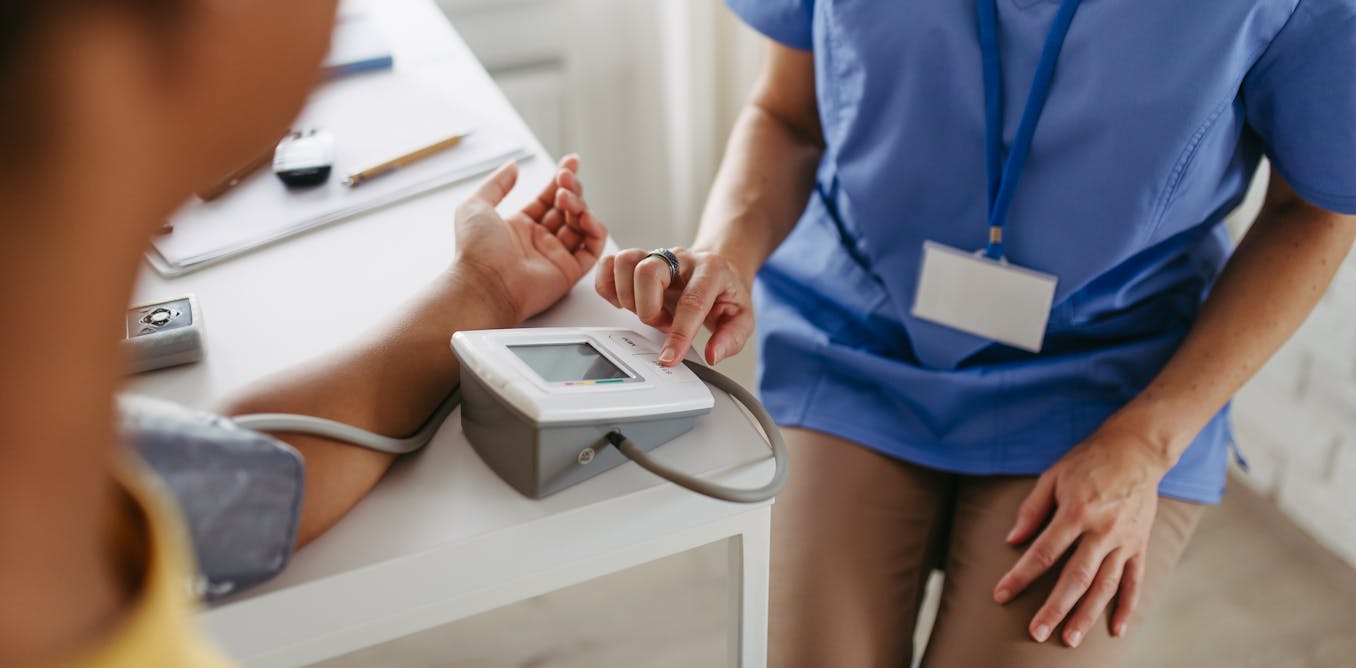FEEDING, sleeping, changing and generally keeping them safe – there is so much to think about with a new baby.
And all parents will make some mistakes along the way.
3
Lesley Bland, midwife at My Expert Midwife, said: “Most of us know the basics of what to do with a newborn.
“We support their heads, keep them warm, and change their wet and dirty nappies as often as needed.
“And we tend to know what we shouldn’t do with them.
“But are you aware that there are lots of things you should never do?”
Here, Lesley and eight other experts, all speaking at The Baby Show, which returns to Olympia London from October 25 to 27, reveal the most common mistakes parents make, the consequences – and how to avoid them.
1. Following the crowd
As a new parent, it can be easy to compare yourself to others.
But Lucy Shrimpton, sleep and wellbeing expert at The Baby Show and founder of The Sleep Nanny, urges mums and dads to avoid doing so as much as possible.
“One thing I believe you should never do with a new baby is feel pressured to follow anyone else’s routine or timetable,” she said.
“It’s easy to get caught up in comparing your baby’s sleep, feeding, or development with others, or to think you should be doing things a certain way because someone else says so.
“But every baby is different, and the most important thing you can do is to tune into your baby’s cues and trust your own instincts.
“There’s no ‘one-size-fits-all’ when it comes to parenting, and what works for someone else might not be the best thing for you or your baby.
“Trust your connection, create your own rhythm, and let go of the pressure to fit into a standard that doesn’t feel right for you.”
She also wants to remind parents that it’s “perfectly OK” to ask for help when you feel stuck.
“You’re not expected to have all the answers, and the right experts can provide the tailored support you need when things feel uncertain,” Lucy added.
“Your intuition is powerful, and with the right guidance, you can find what works best for you and your baby.”
Nutritionist Charlotte Stirling-Reed agrees. She said: “Never compare your baby with others.
“I learnt this the hard way, but truly every single baby is unique when it comes to eating, feeding, sleeping and their entire personality.
“Your friend’s baby is not your baby so they are bound to be very different.”
2. Bundling with blankets
As winter draws closer, resist the urge to wrap your little one up in blankets, Pip Davies, aka Midwife Pip, said.
“It can be tempting to make sure your new baby is super warm and cosy, but actually being too hot is a risk factor for sudden infant death syndrome (SIDS), so following safe sleep guidelines on layers and dressing baby is really important,” she added.
Lesley said: “Never place them in a cot or bed with soft toys, bumpers, loose blankets or anything else that could become a suffocating hazard.”

3
3. Layering up
The same goes for when you’re out and about.
“Don’t over dress babies in a baby carrier,” Vern Hill, babywearing expert, founder of Carifit and dad-of-two, said.
“Always take one layer off as you and the carrier combined count as a layer.
“So strip them down before you pop them in for a carrier walk or nap.
“The golden rule for babywearing at Carifit is that we feed them, layer them, and then we get moving.
“Often, a hot or hungry baby will be far less settled in their carrier so this tip can be a game changer.”
Lesley added: “Never overheat your baby.
“Do not place them in full sun, avoid placing them near heaters and radiators, and think about how many layers you have them dressed in and how many blankets you put over them at night.
“As a rule, there should be no hats or coats on indoors, and babies only need one layer in addition to what you are wearing to feel comfortable.
“For example, if you have a t-shirt on, place your baby in a t-shirt and a long-sleeved babygrow, or if you have a t-shirt and a sweater on, put baby in a t-shirt, a long sleeved babygrow and a single layer blanket (a folded blanket counts as two layers).”
4. ‘Exercising their lungs’
One of the most common misconceptions, according to parenting expert Rachel FitzD, is that newborns should be left to “exercise their lungs”.
“Never leave your new baby to cry,” the author of Your Baby Skin to Skin said.
“Babies cannot meet their own needs in any way at all and so are totally dependent on their carers for everything, 24/7.
“Your nan may tell you that babies need to ‘exercise their lungs’ or that, by always picking them up the minute they start to whimper, you are creating bad habits and a clingy child, but this isn’t true.
“Babies are unable to learn how to self-soothe or tell the difference between night or day for many months and so leaving them to cry simply increases their stress … and yours.”
How to baby-proof your house

IF you’ve got a baby coming very soon, here’s our top tips on how to get your home ready for their arrival…
Secure Furniture and Appliances: Use brackets or straps to anchor heavy furniture and TVs to the wall. Ensure that large appliances like fridges and ovens are stable and cannot tip over.
Install Safety Gates: Place gates at the top and bottom of stairs. Use gates to block off rooms that are not baby-proofed.
Cover Electrical Outlets: Use outlet covers or plates to prevent little fingers from poking into sockets. Ensure that electrical cords are out of reach or secured.
Lock Cabinets and Drawers: Install child-proof locks on cabinets and drawers, especially in the kitchen and bathroom. Store hazardous substances, sharp objects, and small items that can be swallowed out of reach.
Use Corner and Edge Protectors: Attach soft corner and edge protectors to furniture with sharp edges. Consider using them on low tables, countertops, and fireplace hearths.
Secure Windows and Doors: Install window guards or locks to prevent windows from opening more than a few inches. Use door knob covers and door stoppers to prevent pinched fingers.
Maintain a Safe Sleep Environment: Use a firm mattress and avoid placing pillows, blankets, or stuffed animals in the cot. Ensure the cot meets current safety standards.
Keep Small Items Out of Reach: Regularly check the floor for small objects that could be choking hazards. Be mindful of items like coins, buttons, and small toys.
Adjust Water Heater Temperature: Set your water heater to a maximum of 49°C (120°F) to prevent scalding. Always test bath water temperature before placing your baby in.
Use Baby Monitors: Place baby monitors in the nursery to keep an eye on your little one. Ensure the monitor cords are out of reach to avoid strangulation hazards.
By taking these steps, you can create a safer environment for your baby.
5. Smoking
Most people know not to smoke around babies.
But did you know that you shouldn’t even hold a newborn after a cigarette?
That’s according to Lesley. She said: “Never handle them if you have been smoking.
“Even if you have been smoking outside and then come inside, you will have smoke on your clothes and body.
“Before handling a baby, you should wash your hands and change your clothes.
“Even second-hand smoke is associated with an increased risk of SIDS.”
6. Choosing only milk
Cow’s milk can be used in cooking or mixed with food from around six months.
“But avoid offering it as a main drink until they are at least 12 months old,” nutritionist Charlotte said.
“This doesn’t offer the appropriate nutrition for your baby in their first year of life.”
And when you do introduce it, choose only pasteurised whole milk and semi-skimmed milk.
“Skimmed and one per cent milk should not be given as a main drink to children under five because they do not contain enough calories,” the NHS says.
7. Bottle additions
When feeding, you should never add anything to a baby’s bottle, Charlotte added.
“Anything else can be a choking hazard and/or isn’t recommended for young babies.”

3
8. Labelling ‘bad sleepers’
You’ve almost certainly heard someone refer to their baby as a “bad sleeper”.
Whether they take a long time to fall asleep or wake up constantly throughout the night, the phrase is incredibly common.
But it shouldn’t be, Heidi Skudder, founder of Positively Parenthood, said.
“Never label your baby a ‘bad sleeper’,” she said.
“So many parents are told that they were also a ‘bad sleeper’ when they were young, but there is no such thing as a bad sleeper, just multiple reasons as to why a baby doesn’t sleep.
“Focus on addressing the root cause of your baby’s sleep issues as well as focusing on establishing positive sleep habits and your baby will soon go from a ‘bad’ to ‘great’ sleeper.”
9. Accompanying pets
Whether it’s in the bath or on the sofa with the dog, Lesley and Rachel implored parents never to leave their newborns alone.
“After the constant companionship of being in the womb for nine months, the transition to being in the big wide world takes time and expecting a newborn to be able to tolerate being alone day or night is expecting too much,” Rachel said.
“A good sling in the daytime and a next-to-me crib or Moses basket by your bed overnight means that your baby gets the constant closeness that is absolutely essential in the early weeks and months whilst you get on with your life.”
Did you know that your baby’s gut health is super important for their overall development?
Lucy Upton
Lesley added: “Never leave a baby unattended in the bath – even in a bath seat or bath support.
“They should also never be left unattended with animals – even the most family-oriented dog can turn on a baby.
“They can be triggered by noises, smells, or being poked and prodded.”
10. Ignoring their gut
We hear a lot about looking after our gut health in adulthood.
“But don’t overlook your newborn’s gut health,” Lucy Upton, The Children’s Dietitian, said.
“Did you know that your baby’s gut health is super important for their overall development?
“A healthy gut microbiome helps support their immune system and even plays a role in brain development!
“Plus, a less-than-ideal community of gut bacteria can increase the risk of allergies and asthma, and more later on.
“How you feed your baby can affect their community of gut bugs, with breast milk , for example, containing things like its own community of bacteria and food for your baby’s gut friends.
“You can consider introducing probiotics to your little one from birth, but the key is to choose one that’s clinically tested, with good scientific backing for your baby’s gut and overall health, but that’s also easy to administer in drop form for example.”
Where to find parental support
NSPCC – Offers support for parents, from helping to get babies to sleep, bonding with your baby, managing family life, dealing with bullying and even parental mental health.
Action For Children – Offers a parenting programme “to help parents and children bond, learn, or overcome difficulties”.
Family Lives – Call free on 0808 800 2222 for emotional support, information, advice and guidance on any aspect of parenting and family life.
11. Taking a nap while nursing
New parents are often exhausted, and it can be easy to drift off at any moment.
But Danielle Facey, The Breastfeeding Mentor, wants you to take extra care not to fall asleep when nursing.
She said: “Never fall asleep nursing on an unsafe surface.
“First, it’s crucial to be mindful of the strong effects of oxytocin and prolactin.
“These hormones, released during nursing, can make new mothers feel extremely sleepy, so it’s important to avoid the risk of accidentally falling asleep while breastfeeding.
“Finding a comfortable but safe position for you and your baby is key to preventing any potential hazards.
“The Lullaby Trust has advice and research on practising safe bedsharing and cosleeping.”
12. Ignoring pain
Danielle also wants to remind mums that breastfeeding shouldn’t be painful.
“It is a myth that breastfeeding should be excruciatingly painful,” she said.
“If it is, you need support.
“If you experience any pain while breastfeeding, it’s essential not to push through it.
“Pain is typically a sign of an underlying issue, and it’s always best to seek advice from an International Board Certified Lactation Consultant (IBCLC), who specialises in breastfeeding support.
“They can provide you with expert guidance, which is often more effective than consulting your GP on breastfeeding issues.”
13. Worrying about ‘too much love’
And finally, you really can never love your kids too much, according to Vern.
He said: “Never feel like you can spoil them – you can’t.
“Hold them, kiss them, cuddle them, wear them in your baby carrier as much as you’d like.
“Research shows that it will calm them and calm you, as carried young babies are designed to be ‘attached’ to their primary caregivers so you can’t spoil them with contact and no you won’t make a rod for your own back.”
Sudden infant death syndrome (SIDS) is the sudden and unexpected death of a baby under the age of 12 months where no cause is found.
Around 89 per cent of deaths happen when the tot is under six months old.
It is relatively rare, with 182 babies dying from SIDS in the UK in 2021.
While doctors don’t know exactly what triggers it, there are ways to significantly reduce the chances of SIDS occurring:
- Put your baby on their back for all sleeps – day and night
- Share a room with your baby for the first six months
- Place your baby on their own, clear, flat sleep surface (e.g. cot or Moses basket)
- Keep your baby smoke-free during pregnancy and after birth
- Never sleep on a sofa or armchair
- Do not co-sleep if you or anyone in the bed has been drinking alcohol, smoking, or taking drugs or medication that makes you drowsy
These things are especially important for babies who were born prematurely or of a low birth weight, as they are typically at higher risk of SIDS.
Source: The Lullaby Trust




